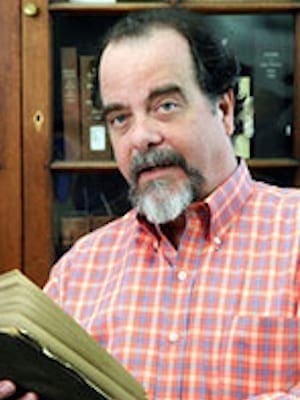Liberation Theology has been a dominant concern in Christian theology for the last 30 years. Its influence has spread far beyond the land where it first appeared. Gustavo Gutierrez gave Liberation Theology its name, but he is more likely its servant than creator, as the late Robert McAfee Brown noted.
On the eve of the first-ever gathering of Latin American bishops on their own soil, Gutierrez reflected on the growing political and theological interests in “development.” He commented, “Latin America does not need a theology of development. What we need is a theology of liberation.”
Liberation Theology has been a dominant concern in Christian theology for the last 30 years. Its influence has spread far beyond the land where it first appeared. Gustavo Gutiérrez gave Liberation Theology its name, but he is more likely its servant than creator, as the late Robert McAfee Brown noted.
Three important international events led to the emergence of Liberation Theology in Latin America. The first was a conference in 1955 in Bandung, Indonesia. There representatives from the industrialized West met to consider the plight of “undeveloped” countries. In Bandung the term “Third World” became a popular description of economically poor regions of the world. The participants at Bandung called for an end to colonialism and called for the creation of economic programs that might aid in the “development” of poor countries.
A second factor was President John F. Kennedy’s ambitious aid program, “Alliance for Progress,” which he announced in his 1961 State of the Union address. He said, “Our goal is a free and prosperous Latin America, realizing for all its states and all its citizens a degree of economic and social progress that matches their historic contributions of culture, intellect, and liberty.” Kennedy’s program was consistent with the hopes of the Bandung Conference.
The third and most significant factor was an emphasis of the Vatican II Council (1962-1965). In the midst of sweeping reforms ushered in by the council, four documents lay the foundation upon which Liberation Theology would rise. Pope John XXIII issued two encyclicals (Mater et Magesteria and Pacem in Terris) that expressed a distinctly theological notion of “development.” The council produced a similar document, Gaudium et Spes. Paul VI, John XXIII’s successor, issued his own encyclical, Populorum Progressio, that advanced the reform attitudes of the council.
By the close of Vatican II, Latin American bishops had begun to take up the new emphases on development as it related to Latin America. The bishops had formed CELAM (from the Spanish for the Council of Latin American Bishops) in 1955. With the optimism of Vatican II they began planning for a conference in MedellÃn, Colombia, in 1968. The theme of the conference, which spanned August and September, was “The Church in Current Transformation of Latin America in the Light of the Vatican Council.”
Gustavo Gutierrez challenged the presuppositions of the Vatican II documents—and the prevailing political attitudes of the West—regarding the need to “develop” Latin America. He suggested that mere “development” was only another form of colonialism. He urged his colleagues to think in terms of the New Testament hope (drawn from Isaiah) “to set at liberty those who are oppressed” (see Lk 4:18-19).
At least three components define Latin American Liberation Theology. First is the reality of praxis, which is reflection upon specific action demanded by the Gospel. Second is a stark and intentional focus upon the poor. Finally there is the confession that history and geography are unified.
Praxis is a combination of action and reflection. It is “thinking doing” and “doing thinking.” Gutierrez identifies praxis as living faithfully in response to the Gospel. He notes that the Gospel calls us to live a particular way, and that theology gives us a chance to reflect upon and make confessions about the way we live. Theology is not only about ideas and confessions. Theology also is about lifestyles and commitments to effect change in the world according to the hopes of the Gospel.
Latin American Liberation Theology includes a sharp focus on the poor. Echoing “the least of these” from Matthew 25 and James’ “has not God chosen the poor in the world to be rich in faith?” (2:5), Latin American Liberation Theology challenges the starting point(s) of theology. Salvation, the liberationist says, is at least the hope to be set free from social and political oppression. The Exodus narratives are important points of departure. In them there is evidence that salvation is as much “here and now” as it is a hope for some afterlife realization.
Finally, Latin American Liberation Theology challenges every attempt to divide history and geography. The notions of what was, what is and what will be are not distinct periods. If there is a difference between what is and what the Gospel demands, then Christians should be committed to removing the disparity. Geography, then, is not a reasonable justification for disparity.
Rick Wilson is the Columbus Roberts Professor of Theology and chair of the Roberts Department of Christianity in Mercer University’s College of Liberal Arts in Macon, Ga.
Buy Wilson’s books now from Amazon.com!
Mercer Commentary on the Bible
Rhythms: Sermons for a Community of Faith and Learning

